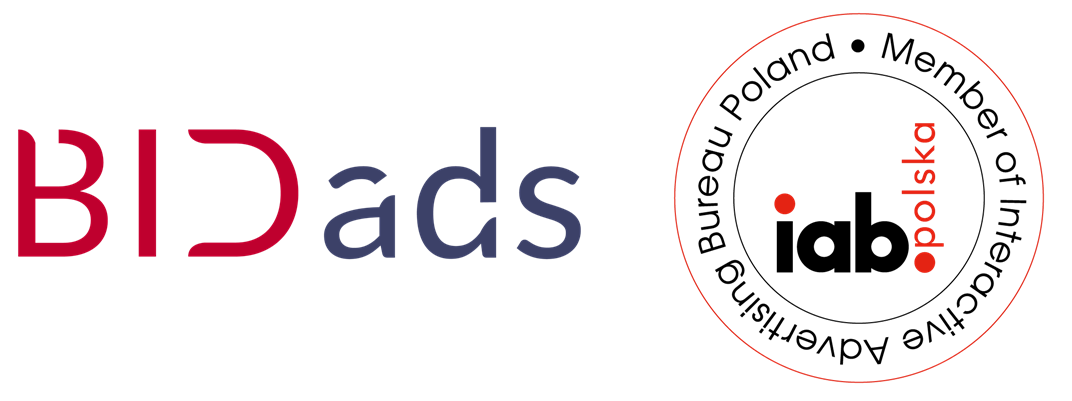Give us a call!
Send us a message!
Hiring an expert is just the first step. True value comes when, instead of "he" and "we," we start working as a team. It's not about grand declarations or complex processes. Small things are enough, like clear communication, quick feedback, and daily contact. These things build trust, commitment, and real results. Without them, even the best specialist won't reach their full potential.
Author: Monika Sypczuk, CEO of BIDads
I increasingly hear from clients: "We need a specialist right away. Someone who will jump into the project and get started right away." And it's no wonder. In digital marketing, everything is happening at a dizzying pace. Talent outsourcing seems to be the ideal solution. It's a flexible collaboration modelwhere companies have quick access to specialists without the need for a (hopefully) weeks-long recruitment process. As a mentor and CEO of a company specializing in recruitment support for the digital marketing industry, I see how this collaboration model can significantly accelerate team and business development. But I also see something else…
Hiring an expert is only half the battle…
Imagine this: a company needs support for a Paid Social campaign. Within a few days, a great specialist joins – experienced and with the right skills. Yet, something isn't working. The project drags on, misunderstandings arise, and motivation drops. Why?
Bo Because even the best expert won't accomplish much if they feel like an outsider from day one. Lack of integration with the team is a real risk. The hired specialist doesn't understand the context, doesn't understand the relationships, and doesn't have the courage to propose changes. Not because they don't want to, but because they don't feel like they're part of the team.
"Does what I do really matter?"
For several years, I've been conducting mentoring sessions with experts from various companies and industries. Regardless of their position, the same question arises: "Does what I do really matter?" This question rarely stems from a lack of competence. More often, it stems from a lack of genuine connection with the team and a feeling of working "alongside" rather than "with" someone. The exact same mechanism operates in body leasing. A lack of integration deprives a hired specialist of a sense of belonging, and without it, it's difficult to achieve full commitment, initiative, or accountability for results. Therefore, integration isn't a supplement to collaboration. It's a prerequisite for its success.
Lack of integration = decreased engagement
An external specialist who doesn't feel part of the team acts cautiously, limits themselves to tasks rather than proposing solutions, and thinks in a "them" mode, not an "us" mode. The result? Not only does the pace of work decrease, but above all, the quality of collaboration. A lack of integration means not only discomfort for the new hire; it also results in tangible losses for the company, including:
- Project delays. The outsider doesn't understand the context, doesn't have access to all information, and works half-heartedly.
- Low motivation. Without a relationship with the team, the employee doesn't feel responsible for the results of their work.
- Lack of innovation. Individuals who aren't integrated are less likely to propose new solutions because they feel they "don't belong."
A well-integrated specialist, on the other hand, takes on tasks faster, better understands business goals, and builds relationships that pay off in future collaborations.
What does an "integrated team" mean?
An integrated team is one where everyone – regardless of whether they're a "permanent" employee or a "temporary" employee – feels part of the whole. They know their role, have access to information, and can confidently ask questions and raise concerns. And most importantly, they know their contribution counts. Take, for example, the Paid Social expert mentioned above, who joins the team mid-campaign. In a well-integrated team, a hired expert – even if they can start working immediately – won't be thrown into the deep end without instructions. They're immediately provided with not only all the necessary data (campaign goals, target groups, schedules) but also the opportunity to share their ideas and feedback. They can immediately propose tests for new creatives or optimizations that have a real chance of working because they're based on shared knowledge and open communication. Thanks to integration, even if someone is "hired temporarily," they become part of the team, and their ideas have a real impact on the campaign's success. Flexible and fast project teams are the future of digital marketing.
How to quickly integrate a specialist into your team?
Integration doesn't have to be a complex and lengthy process. Sometimes it's the small gestures that make the biggest difference. Here are a few simple steps that can truly transform the quality of your collaboration with a new specialist hired through body leasing:
- Welcome the new person as a team member, not as an "outsider." Instead of saying, "This is an outsider, here to help," say, "A new specialist is joining us. We'll be working on a campaign for XYZ."Just that, and it sends a clear message: "You're part of the team."
- Provide context. Don't limit yourself to just handing out a to-do list. Briefly describe the project's background, goals, and client expectations. At Paid Social, this could be, for example, insights that influenced the campaign strategy, something that allows you to "feel the topic."
- Introduce the team. Show who's responsible for what, who's the decision-maker, and who's worth asking. You can also add a sentence or two about their work style: "Anka likes specifics, Łukasz prefers to talk things through first."
- Establish daily contact. Don't leave the specialist to their own devices after their first day. In the morning, write on Messenger: "Hey, how are you doing? Do you need anything?",and after completing the task, offer a quick: "Great, thanks. That helped us a lot" (assuming it's true, of course. 🙂 Also invite them to daily team status updates, even if their participation is brief. Regular contact gives them a sense of being part of the whole and allows them to get into a flow with the team more quickly.
- Create a space for asking questions. Encourage the specialist to ask questions, comment, and suggest changes. Give them the space to not be afraid to say, "Maybe we should do this differently?"In the dynamic world of digital marketing, this can be a game changer.
The Role of a Body Leasing Company: More Than Recruitment
A good body leasing company doesn't just "deliver" a specialist. Their job is to ensure they know which team they're joining and understand the client's values and work style. It's also important that both parties understand their roles and expectations, and that onboarding doesn't end with a single phone call.
At BIDads, we know perfectly well that simply "delivering" someone is a significant step forward. That's not much. That's why, even at the specialist selection stage, we look for open-minded, independent individuals who can work in diverse organizational cultures (if you're looking for a job in SEM, SEO, Paid Social, or Programmatic through body leasing - leave your CV). We also maintain constant contact with our specialists and clients – if something doesn't click, we act immediately.
Remember, hiring an expert is only the first step. True value comes when, instead of "he" and "we," we simply start working as a team. It's not about grand declarations or complex processes. Small things, like clear communication, quick feedback, and daily contact, are enough. These are what build trust, commitment, and real results. Without these, even the best specialist won't reach their full potential.
What's it like for you? What works for integrating specialists into your team? Let me know – I'd love to hear different perspectives.
If you want to learn more, follow our series. More interesting topics await.
Monika Sypczuk, CEO of BIDads, a company specializing in body leasing and recruitment for the digital marketing sector, has over 20 years of experience managing complex B2B sales processes, gained in IT, Telco, and e-commerce companies. A certified mentor and coach with EMCC accreditation, she actively supports the development of women in business through her participation in acceleration programs run by the Entrepreneurial Women's Network Foundation and the Digital Bridge-Mentoring for Growth community.





